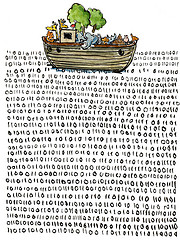
C. Self-publish using the services of professional formatters/distributors etc
C. Self-publish using the services of professional formatters/distributors etc
By Patricia de Hemricourt
When considering self-publishing, the main advantages of ePublishing are its low cost, ease of access and relative ease of use. For an unpublished writer, it provides ideal way to test the waters. Should the book get a decent following in eFormat, it might even attract literary agents or traditional publishing house. Whether we will still be interested in them after conquering fame alone is another question entirely.
However, this does not mean that ePublishing on our own does not bring an entirely new set of problems. A publishing house, whether traditional or digital takes care of the editing, the reviewing, the formatting and the book cover layout, as well as the distribution and a varying share of marketing efforts. This is what justifies their royalty’s lion share.
Actually, a large part of these services are now offered by publishing platforms. These are manned by geeks entrepreneurs who put their technological knowledge at the service of technically challenged and time pressed writers.
The main publishing platforms are Smashwords.com and Lulu.com. There are a number of copycats eager to hitch a ride on that juicy business, but we will examine those two today. Amazon Kindle is essentially a distribution platform and writers are required to format their own books, so though it is also referred to as a publishing platform, the technical publishing parts are provided by the writer. As we are considering ePublishing, it might be relevant to mention here than last April, the sales of eBooks on Amazon reached 105 eBooks for 100 print books. The growth of the market for eBooks seems unstoppable and a strong point in favor of ePublishing when weighing publishing in print or digitally.
Smashwords offers two services. Formatting a book from a clean word document into the appropriate formats for Amazon Kindle, Apple iPad, personal computers, the iPhone (via Stanza e-reader app), Sony Reader, Kobo Reader, Android smart phones, and more. The list of available formats is updated as they come out. In addition, it offers distribution services in its own bookstore and in Apple, Barnes & Noble, Kobo, Borders Australia and Angus & Robertson Australia, Whitcoulls (New Zealand) and the Diesel eBook Store. On May 4, 2011, they added ScrollMotion to that list and they are constantly adding new distribution outlets.
Royalties are paid as follow :
“For sales at the Smashwords.com retail store, (Sales price minus transaction fee) multiplied by .85 = proceeds to author/publisher. The royalty rate for sales originated by affiliate marketers is70.5% net. For most retail distribution partners, Smashwords pays the author/publisher 60% of the suggested list price you set for your book. These rates vary by retailer for sales outside the US. Apple, Barnes & Noble and Diesel are 60% of retail price, though for Apple’s UK, France, Germany and Australian bookstores, Apple deducts a Value Added Tax (VAT) from your sales price, so your actual royalty = 60% of (Retail price – VAT). Kobo is also 60% for books priced between $.99 and $12.99 for US and Canadian dollar-denominated sales. Sales in other currencies at Kobo are at 38% list.”
Authors have to authorize the sale of their book through affiliates.
Smashwords also offers a list of freelancers ready to prepare your manuscript for you if “cleaning” the word document and composing the copyright page proves too complicated and a list of low budget freelancers for your book cover. This list is purely indicative and authors are free to provide their own cover and formatting. Securing an ISBN number is the author’s responsibility and, as some distributors do not accept eBooks without ISBN, it is recommended to secure one. We can do so either for free by listing Smashword as the Publisher, or through Smashword for a fee or independently.
They offer no editorial service whatsoever, so it is the writer’s responsibility to ensure that the manuscript is flawless before publishing it. They provide no print services.
Lulu is a print on demand publishing platform that added digital services to its print services. It offers a large number of services for varying upfront fees, but eBook publishing is free of upfront charges and the writer retains 80% of royalties. Lulu distribution channel results from leveraging its print distribution channel and is not as extensive as Smashwords.
Time to grade:
- Upfront money investment (nil)
- Time investment (5 hours +)
- Timeline to publication (1 day +)
- Probability of gaining access to the platform (100%)
- Copyright retention (100%)
- Royalties percentage for the author (up to 85%)
- Risk of ending with a scammer/unprofessional provider (low)
- Required self-involvement in marketing (extensive)
- Probability of rising to best-seller status (very low)